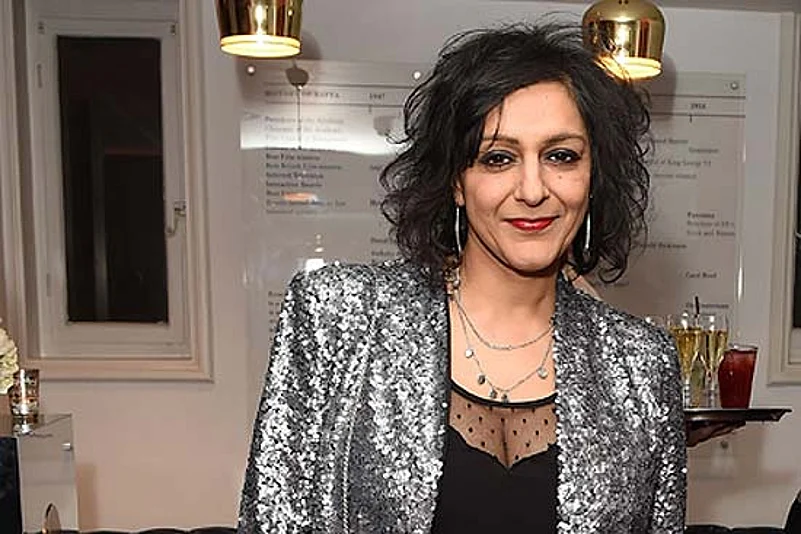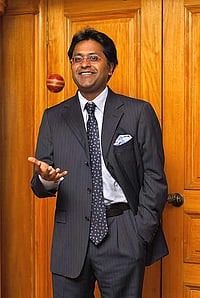
Meera Syal needs no introduction in the UK. Her smash-hit TV comedies—be it Goodness Gracious Me or The Kumars at No. 42—have made her a household name among people of all ages, colour or country of origin. She was made Commander of the Order of the British Empire (CBE) last month, for services in drama and literature. This week, she releases her third novel—The House of Hidden Mothers—16 years after her last book, Life Isn’t All Ha Ha Hee Hee. Hidden Mothers touches upon the sensitive subject of surrogacy. A taboo in the British Asian community, along with divorce and dating a younger man, many ‘late mothers’ return to India for surrogacy, where it has grown into a prolific business. Excerpts from a conversation with Nabanita Sircar in London:
Is there an autobiographical element to the book?
The most autobiographical element is actually the subplot, in which the parents buy a flat in Delhi they plan to retire to, and a member of the family takes over, refusing to leave and they have to embark on a years-long, costly legal case. That’s exactly what happened to my parents. It broke my father’s heart completely and there was a rift in the family, all for nothing, because by the time they got the flat back they were too old to enjoy it.
Luckily, I have not had infertility problems myself but have been very close to people who have been through that terrible pain. That’s why I was interested in the surrogacy story, it’s such a hot topic and India’s surrogacy business is the biggest in the world. It was a perfect metaphor to explore the relationship between the West and India.
You compare outsourcing of call centres to outsourcing for babies. Where do you see the connection?
The surrogacy industry is a sort of natural progression of a capitalistic exchange between the West and the East. You put your call centres there because labour is cheap, you hire your wombs there because labour is cheap. It’s kind of pretty much the same thing, but with deeply different moral consequences.
You reminisce about India in the book, the changes in the country, including the Nirbhaya episode. How do you see India now, with a new government?
There is a reason I set this book in 2012. I wanted to set it in an era before the regulations in art came in, because I know there is a bill going through Parliament right now. And also, because it was the year of Nirbhaya, a landmark event, it changed something profoundly. The generations coming up will have two issues for them—corruption and sexual violence—and I really feel this passionate, new, bright generation want these two issues to be sorted out. I don’t see either of them going away.
What do you feel about recent issues like the ban on beef and vandalisation of churches in India?
It’s kind of everywhere, you know. When you look, what’s happening in India is a sort of reflection of what is happening everywhere, a fear or suspicion of immigrants or those that don’t fit in with the main homogeneous culture. We have seen the rise of ukip here, there is a huge immigration debate going on in Europe. While the world is somehow supposedly getting smaller and we are all connected, we are also getting much more divisive and retreating to our tiny little tribes. For me, when I was growing up, I called myself Black politically. I was part of that generation. All I saw was the kinship that I had with other people of colour, that we were fighting the same worldwide issues. It really saddens me that we are now getting more and more divisive, instead of looking at things that connect us as human beings.
Do you feel there is a rise in Hindutva that may harm the pluralism of India?
It’s really interesting talking to my parents because my mum grew up in a small village near Patiala and she said, “We grew up with every single religion around us, Sikhs, Hindus, Muslims” and she said “when they celebrated Id they would bring us sweetmeats and would join in when we had Diwali”. Nobody is forcing anybody else to change their religion, each does what they want to do, you coexist peacefully, but you respect each other’s differences. It’s really that simple. That’s actually one of the things that made India, and quite rightly being the title of the biggest and most successful democracy in the world, something we were really proud of.
Are you concerned about how it may affect India?
I think there is always a concern when things veer towards fundamentalism in any form because you know amongst the first victims are free speech and women, always, doesn’t matter what group it is. Any country that fears other groups is a weak country. I think India is too old and too strong for that. India always remains India somehow, you know. You look at these centuries of how many times we have been invaded, put in chains, plundered and colonised and India is still India, the spirit of India is always there and it’s too strong for anybody to break.
Is there anything in India that you would like to see changed?
I am not sure I am qualified to make any suggestions, I don’t live there, and I don’t want to be the kind of person that is sitting 5,000 miles away and saying, you should do this and that. I know what I feel when I go over there. I see a country which has not even scratched the surface of its potential. I have always known I come from an incredibly rich, beautiful culture that I am really proud of in so many ways. That won’t change. But now what I see is this really vocal, passionate generation that is really knocking down the old traditions and questioning things in a very interesting way. The only thing I hope is that, in a rush to be on a par with the West, we don’t become the West, because we have so much that is unique and beautiful that we need to hold on to, and rather learn from the mistakes the West has made, don’t make them.
In the early and mid-’90s most Indian-origin Britons refused to acknowledge their origins, but now it is different, what has changed?
I know, somewhere around 1999 we suddenly became cool, I don’t know what happened. Before that, it was really cool to be Black, not surprising, the music and the literature that came from the community was inspirational and everybody wanted to be a part of that. And suddenly what happened. Around the time when Bombay Dreams (the Andrew Lloyd Webber musical Syal wrote the script for) came out, it’s like people rediscovered us. We were briefly in fashion in the ’60s when everyone wanted to do the hippie thing, but seriously, it’s had a lot to do with economic resurgence in India, a lot to do with the flowering of the community here, who, you know, were not getting rid of their roots but actually celebrating them and celebrating both cultures. That whole generation, that I am part of, that came up with Goodness Gracious Me, Nitin Sawhney’s music and Tanika Gupta and all those people from that generation, plus the millionaires—we kind of proved to people that far from being a mixed-up crazy generation, we were actually benefiting hugely from having both and enjoying our differences.


























